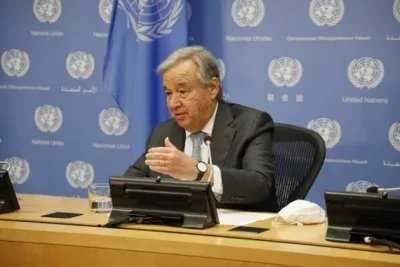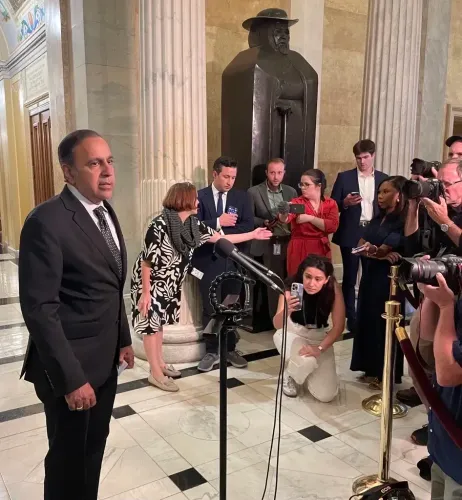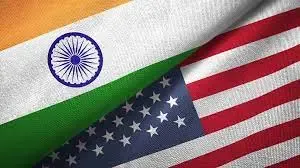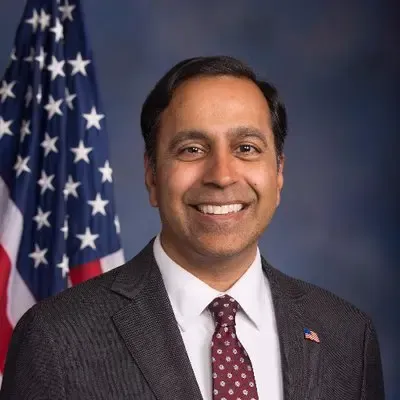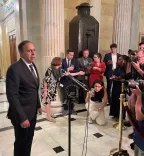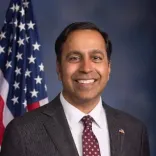What’s Next After South Korea's National Assembly Passes Special Counsel Bill on Ex-Prez Yoon's Insurrection Charges?
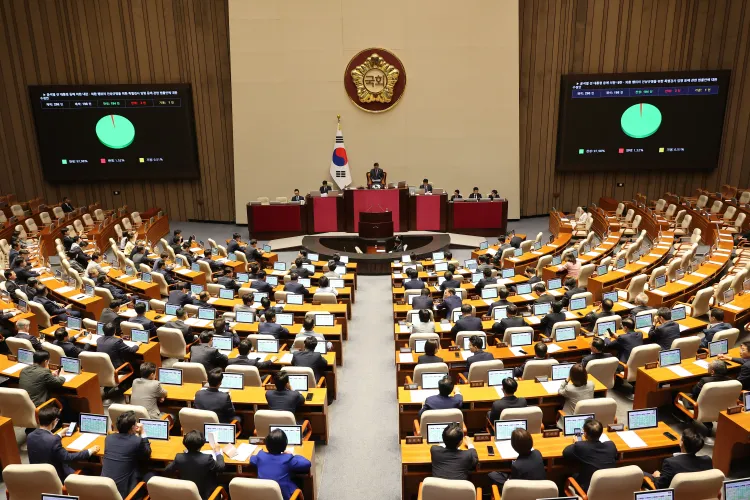
Synopsis
Key Takeaways
- Special counsel bill passed with a 194-3 vote to investigate Yoon Suk Yeol.
- Expanded scope from six to 11 charges against Yoon.
- Legislative action follows political turmoil
- Majority of PPP lawmakers abstained in protest.
- Lee Jae-myung elected President amid significant political change.
Seoul, June 5 (NationPress) The National Assembly of South Korea has successfully passed a special counsel bill aimed at investigating insurrection charges against former President Yoon Suk Yeol related to his unsuccessful attempt to enforce martial law.
This legislation received overwhelming approval with a vote tally of 194-3, alongside one abstention, during a plenary session dominated by the ruling Democratic Party (DP).
During the same session, lawmakers approved two additional special counsel bills, one addressing former first lady Kim Keon Hee concerning allegations of stock price manipulation and her acceptance of an expensive handbag.
The bill directed at Yoon establishes a permanent special counsel to investigate a total of 11 charges, which include insurrection and military mutiny, linked to his failed martial law proposal from December.
This legislation was revived after being vetoed and dismissed on two previous occasions, expanding its focus from six to 11 charges.
A separate bill aims to initiate a special counsel investigation into claims that the presidential office and the defense ministry improperly intervened in the military's inquiry regarding the death of a Marine during a search operation in July 2023, as reported by Yonhap news agency.
Moreover, the National Assembly passed an additional bill empowering the justice minister, alongside the prosecutor general, to request disciplinary measures against prosecutors directly.
The majority of lawmakers from the People Power Party (PPP) abstained from the vote in protest, condemning the DP for unilaterally advancing bills without bipartisan consensus.
Additionally, on the previous day, Lee Jae-myung, the candidate from the Democratic Party (DP), was elected President following a period of turmoil surrounding the impeachment and ousting of his predecessor due to a failed attempt to impose martial law.
Lee's election marks a significant comeback, having narrowly lost to former President Yoon Suk Yeol by less than 1 percentage point in the 2022 election.
While Yoon's martial law attempt in December facilitated Lee's ascension to the presidency, it also exacerbated the country's political rift and heightened challenges related to various issues, including U.S. tariff policies and North Korea's advancing nuclear capabilities, according to Yonhap news agency.
With all ballots counted, Lee from the liberal DP secured 49.42 percent of the votes, while his conservative PPP rival Kim Moon-soo garnered 41.15 percent.


